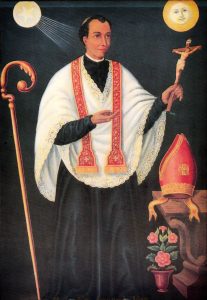
A recent proposal by some Goan Catholic groups suggests referring to St. Joseph Vaz, the beloved 17th-century missionary, as “St. Joseph Naik Vaz.” They argue that adding “Naik,” supposedly tied to his family’s ancestral identity, would honor Goan heritage and boost evangelization efforts in India. However, this idea is deeply flawed. Rather than reflecting genuine cultural integration, it subtly promotes caste divisions, clashing with the universal spirit of Christianity and the saint’s own legacy.
Who Was St. Joseph Vaz?
Born in 1651 in Benaulim, Goa, to devout Catholic parents, Cristóvão Vaz and Maria de Miranda, St. Joseph Vaz was baptized simply as Joseph Vaz. Historical records, including early biographies and Goan archives, show no evidence of “Naik” as part of his personal name, though his family was linked to a prominent Naik lineage from Sancoale. In Goan society, “Naik” often points to Upper caste roots from pre-conversion Hindu traditions. His family, Catholic for generations under Portuguese rule, carried a Portuguese surname, as was common among converts.
St. Joseph Vaz’s life was defined by his missionary work. Ordained in 1676, he served in coastal Karnataka, rebuilding churches and resolving disputes despite persecution. In Dutch-controlled Sri Lanka, he disguised himself to minister to hidden Catholics, learned local languages like Sinhala, and even aided a Kandyan king during a smallpox crisis, leading to many conversions. Canonized in 2015, he became the first saint of Goan and Sri Lankan origin, celebrated for his humility and cultural sensitivity.
The Problem with Adding “Naik”
Advocates, including groups like the Joseph Naik Vaz Institute from California, claim that adding “Naik” restores a native element to his identity, making him more relatable to Indians and aiding evangelization. They suggest it aligns with his practice of respecting local names and cultures and could even position him as a patron for South Asia or interfaith dialogue. This argument, however, misunderstands what true cultural integration means in the Christian context.
The Church defines inculturation as adapting the Gospel to a culture’s positive elements while rejecting those that conflict with Christian values, like caste hierarchies. In India, this might mean using local music, art, or languages in worship, such as incorporating Konkani prayers or traditional aarti in Masses. But surnames like “Naik” carry caste connotations, tied to the Upper caste in Konkani communities. Emphasizing such a name doesn’t bridge cultures; it reinforces a system that divides people by birth, contradicting the Christian belief that all are equal in Christ.
How This Reinforces Caste Divisions
Goan Catholicism, shaped by centuries of Portuguese influence, has unfortunately retained caste distinctions from Hindu society, with divisions like Bamonn (Brahmin), Chardo (Kshatriya), and Sudir (lower castes) affecting social practices like marriages or even church seating and cemetery grave alignments in the good old days . The Indian Church has long fought this, with bishops issuing calls to end caste-based discrimination. Adding “Naik” to St. Joseph Vaz’s name doesn’t undo colonial naming practices; it risks glorifying caste pride, alienating lower-caste Catholics and non-Christians who might see it as favoring an upper-caste identity.
St. Joseph Vaz himself never emphasized caste. His work in Sri Lanka showed respect for local customs—wearing simple clothes, learning languages—but he lived humbly, serving all equally. Historical records confirm he was known as Joseph Vaz, not Naik Vaz, and the Vatican canonized him under that name. Inserting “Naik” now is a modern invention, not a historical correction, and it could fracture the faithful by reviving divisive identities.
A Better Path for Evangelization
True cultural integration doesn’t cling to caste markers but builds on unity. The Church can honor St. Joseph Vaz’s Goan roots by promoting pilgrimages to his birthplace, translating his writings into Konkani, or fostering interfaith efforts inspired by his work in Sri Lanka. Evangelization in India grows through love and equality, not by reviving labels that deepen social divides.
In short, calling St. Joseph Vaz “St. Joseph Naik Vaz” is a misguided move that risks casting a casteist shadow over his legacy. It undermines the Gospel’s message of unity and could hinder outreach in a country already wrestling with caste issues. Let’s celebrate St. Joseph Vaz as he was—a humble servant of all, not a symbol of division.

